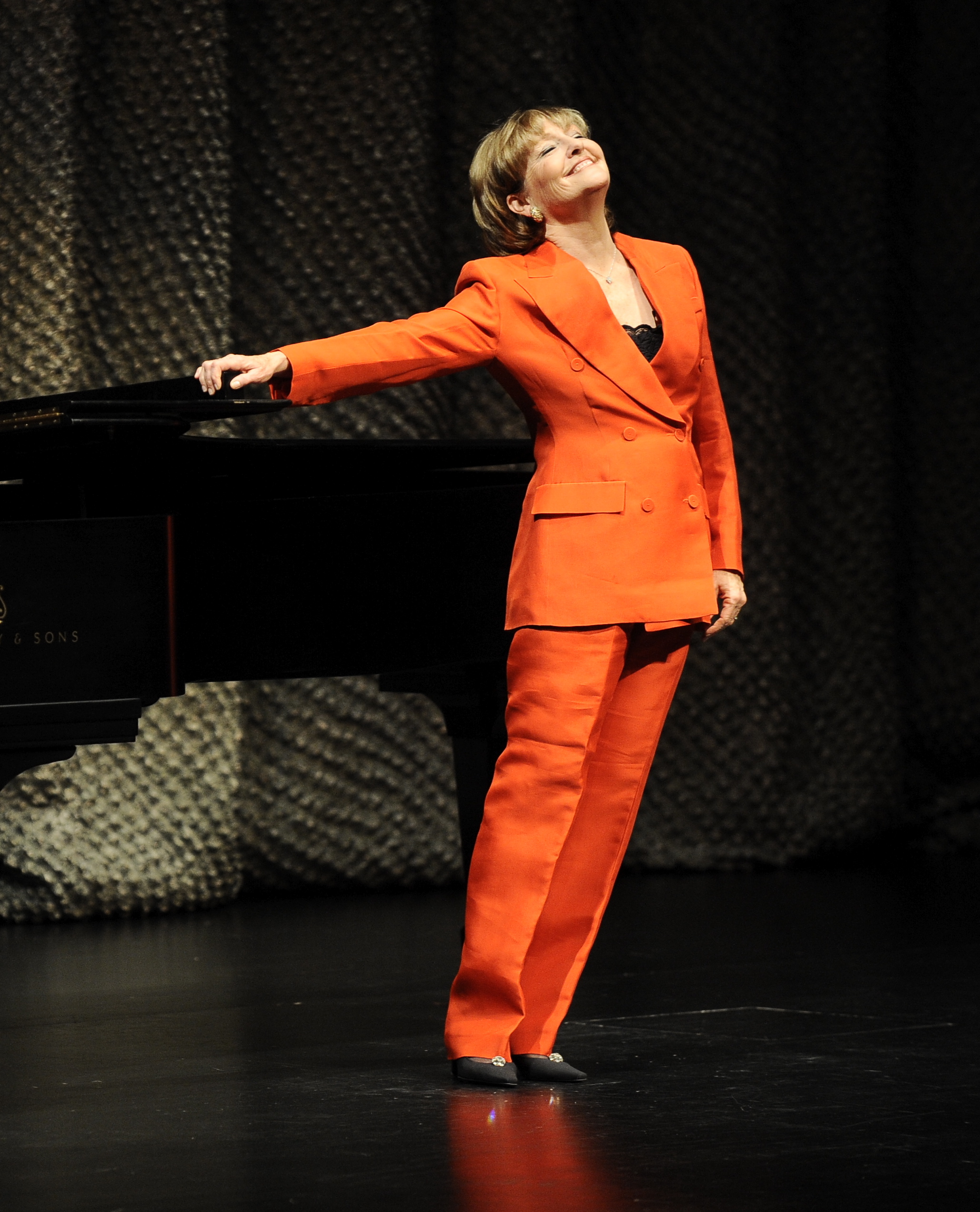Flicka’s farewell

Frederica von Stade performs the "inebriated" aria from Offenbach's "La Perichole" at her farewell recital Monday night at the Harris Theater. Photo: COT.
To no one’s surprise, Frederica von Stade’s Chicago farewell recital offered one of the musical highlights of the year Monday night at the Harris Theater, an event presented by Chicago Opera Theater where she is also currently starring in Jake Heggie’s Three Decembers.
Yet in addition to the musical excellence, the evening was also one of those rare events in which one could palpably feel the affection flowing from the artist to the audience and back to the stage. Strangers reminisced about the first time they heard the celebrated mezzo-soprano, and there was a relaxed warmth and feeling in the Harris Theater that very few artists can evoke and sustain. As a friend said at intermission, “Everyone sitting here feels like she’s singing just for them.”
Like most cliches, it’s true that genuine charisma is something an artist either has or doesn’t, and the soon-to-retire von Stade still possesses it in lavish abundance.
Heggie’s Three Decembers may be a weak reed for von Stade’s operatic swan song, but Monday night’s recital provided the apt platform to showcase the artistry that has made her such a beloved figure for more than four decades.
Von Stade’s voice has never been the most imposing of instruments, slender in size and rather straitened in colors. But, like many singers not blessed with natural raw material, she has more than made up the balance with her versatility, artistic integrity and the personality-plus charisma that has made her as irresistible a figure on the concert platform as her Cherubino has been in the opera house.
One of the singer’s most laudable traits has been her commitment to American song, and the first half of Monday’s program was devoted to French and homegrown repertoire, two of her specialties.
The evening made an autobiographical arc of sorts, with the singer introducing the selections as they reflected her life—born in the U.S., a childhood in Greece and her youth in Paris. Among the highlights were a jaunty, spirited Tout gai! of Ravel, a dreamy rendering of Poulenc’s Hotel and a gorgeous La vie en Rose.
The singer was at her best in Virgil Thomson’s Prayer to St. Catherine, a von Stade evergreen, evoking the child’s plea with poignance and tenderness while capturing the light satirical essence. In Ned Rorem’s Early in the Morning she distilled the essence of the setting’s wistful nostalgic ache.
Heggie was represented with several selections including the humorous A Route to the Sky—from the cycle he wrote for von Stade, Paper Wings—-and based on a true story when the singer had to clamber after one of her daughters who climbed out on the roof.
Her wit and fame in light comedic roles can sometimes make people forget how compelling a vocal actress von Stade is in drama. Her account of Va, Laisse couler mes larmes from Massenet’s Werther unerringly captured the stark desolation of Charlotte’s despair.
The mezzo possesses a distinctive gift, able to make you smile even as she breaks your heart with a bittersweet sadness. That duality was manifest in the sensitive performance of Carol Hall’s Jenny Rebecca, for which her first daughter was named, and especially, von Stade’s rapt, otherworldly performance of Connais-tu le pays from Thomas’s Mignon, which was the highlight of the evening.
Heggie remains a first-class accompanist and supported his friend and colleague with unfailingly stylish and responsive keyboard support throughout the evening.
Encores included a delicately hued Greeting from Bernstein’s Arias and Barcarolles and von Stade’s twangy, vividly characterful Ado Annie in Rodgers and Hammerstein’s I’m Just a Girl Who Can’t Say No from Oklahoma.
The singer ended the evening not with sadness but humor, with her signature closer, the inebriated aria Ah! quel dîner je viens de faire from Offenbach’s La Périchole, with fresh and imaginative overserved bits of business.